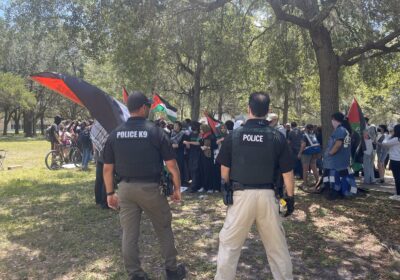Caribbean trafficking woes justify US response
Last week, Secretary of State Hillary Clinton met in Barbados with foreign ministers from the Caribbean, discussing ways to combat the growing threats arising from the region’s drug and weapons traffickers.
Clinton used the meeting to unveil President Barack Obama’s Caribbean Basin Security Initiative (CBSI) – a program that is set to devote $124 million over the next two years, among other more important initiatives, to strengthen Caribbean countries’ defenses against an out-of-control problem.
Helping Caribbean nations combat these issues is critical to the U.S.’s success in limiting many problems created by its enormous drug consumption.
With recent crackdowns on Mexican cartels that may be looking for new places from which to operate, it’s wise to spread focus to the Caribbean as well.
The region has recently seen a wave of violence, with drug-fueled crimes raising the number of homicides to all-time highs in Jamaica, Puerto Rico and the Bahamas, according to the Associated Press.
In Jamaica, drug violence has taken a turn for the worse.
After continually rejecting the extradition of drug kingpin Christopher “Dudus” Coke, Jamaican authorities recently agreed to turn him over for prosecution in the U.S. on weapons and drug charges.
The Kingston neighborhood that Coke calls home was soon filled with blockades set up by armed civilians who were willing to fight and die to prevent his prosecution.
Gun battles with police left 73 civilians and three security officers dead.
While the large sum of money will certainly help Caribbean governments, prosecutions alone are unlikely to bring the drug and weapons trades to an end.
The CBSI also intends to “reduce the opportunity for crime and violence to thrive in the Caribbean region by increasing the skills and educational opportunities for populations vulnerable to recruitment by criminal organizations and fostering community and law enforcement cooperation,” according to U.S. Department of State website.
Realizing that punishment and prosecution can only do so much in prevention, the CBSI plans to work on the social causes that contribute to the problems.
The initiative will also “provide alternatives to at-risk youth, such as formal and informal education initiatives, and through the establishment of effective training and employment opportunities,” the website states.
The term “war on drugs” incorrectly implies that there can be a victory – and subsequently an end – to drug dependency in the U.S. There can only be attempts to limit the trade’s impact, and this measure takes important, realistic steps toward doing so.







